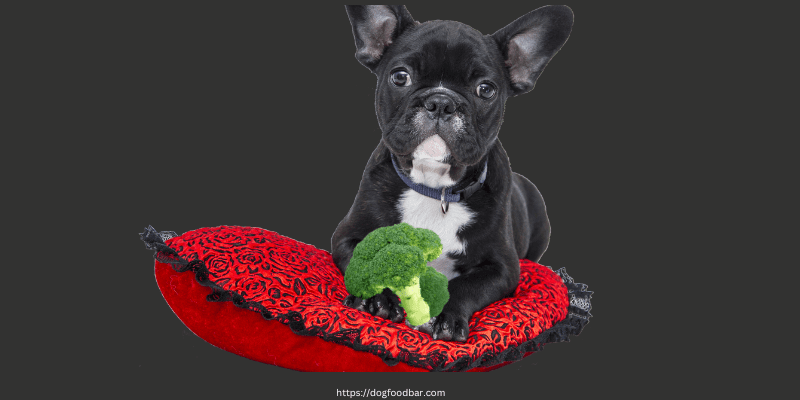5 Most Food Obsessed Dog Breeds

Top 5 Most Food Obsessed Dog Breeds: Are You Ready for the Challenge?
If you’ve ever owned a dog, you know they’re often driven by their stomachs. But some breeds take their love for food to a whole new level. Let’s take a closer look at the top five most food obsessed dog breeds that will keep you on your toes (and in the pantry).
Labrador Retriever
It’s no surprise that Labs make the top of this list. These friendly and outgoing dogs are notorious for their love of food. Whether it’s kibble, treats, or even the occasional table scrap, Labs will devour anything in sight if given the chance. Their eagerness to eat often leads to obesity, so it’s essential to monitor their diet closely and provide plenty of exercise.
Beagle
Beagles may be small in size, but their appetites are anything but. With their keen sense of smell, these scent hounds can sniff out food from miles away. Beagles are notorious for raiding trash cans and scavenging for leftovers, making them a constant challenge for owners who need to keep their kitchens dog-proofed. Training and proper supervision are crucial to prevent them from overindulging.
Basset Hound
Known for their droopy ears and sad eyes, Basset Hounds are also known for their love of food. These low-slung dogs have a knack for tracking scents, making them skilled hunters when it comes to finding snacks. Basset Hounds are prone to obesity, so owners must be vigilant about portion control and regular exercise to keep them healthy and happy.
Dachshund
Don’t let their small size fool you—Dachshunds have big appetites. These sausage-shaped dogs are notorious for their love of food, and their relentless begging can be hard to resist. Dachshunds are prone to weight gain, which can lead to back problems due to their elongated bodies. It’s crucial to feed them a balanced diet and limit treats to maintain their health.
Pug
With their wrinkled faces and charming personalities, Pugs have a way of winning over their owners—and their food. These compact dogs are known for their voracious appetites and will do anything for a tasty treat. Pugs have a tendency to overeat, which can lead to obesity and related health issues. It’s essential to feed them a nutritious diet and monitor their weight closely to prevent problems down the line.
What Causes Food-Obsession in Dogs?
Food is a powerful motivator for dogs. Many of our furry friends have a keen interest in anything edible, but for some, this interest borders on obsession. But what exactly causes this food-focused behavior in our canine companions? Let’s explore the various factors that contribute to a dog’s food obsession.
- Genetics: Like humans, dogs can inherit certain traits from their ancestors. Some breeds have been selectively bred for their strong food drive, leading to a predisposition towards food obsession. Breeds such as Labradors, Beagles, and Pugs are known for their love of food, thanks in part to their genetic makeup.
- Environment: A dog’s environment plays a significant role in shaping their behavior, including their relationship with food. Dogs that have experienced food scarcity or competition for resources may develop a heightened sense of urgency when it comes to mealtime. Additionally, dogs that have been rewarded with food for certain behaviors may become more food-focused as a result of positive reinforcement.
- Lack of Stimulation: Dogs are intelligent creatures that thrive on mental and physical stimulation. In the absence of adequate enrichment, some dogs may turn to food as a source of entertainment or comfort. Boredom and loneliness can exacerbate food obsession, leading to behaviors such as constant begging or scavenging for scraps.
- Medical Conditions: In some cases, food obsession may be linked to underlying medical conditions such as hypothyroidism or Cushing’s disease. These conditions can affect a dog’s metabolism and appetite, leading to excessive hunger and food-seeking behavior. It’s essential to rule out any medical issues with the help of a veterinarian if you suspect that your dog’s food obsession is abnormal.
- Lack of Training: Dogs thrive on structure and consistency, and without proper training, undesirable behaviors such as food obsession can develop. Dogs that have not been taught appropriate mealtime manners may resort to begging, stealing food, or exhibiting other food-focused behaviors. Positive reinforcement training techniques can help address these behaviors and promote healthier eating habits.
food obsession in dogs can stem from a variety of factors, including genetics, environment, lack of stimulation, medical conditions, and lack of training. Understanding the underlying causes of your dog’s food obsession is the first step towards addressing the issue and promoting a healthier relationship with food. By providing proper training, enrichment, and veterinary care, you can help your furry friend lead a balanced and fulfilling life.
What to do about a food obsessed dog
Dealing with a food-obsessed dog can be challenging, but there are steps you can take to manage this behavior and promote a healthier relationship with food. First and foremost, establish a consistent feeding schedule with measured portions to prevent overeating and weight gain. Avoid free feeding or leaving food out all day, as this can encourage constant grazing and reinforce food obsession. Additionally, provide mental and physical stimulation through interactive toys, games, and regular exercise to help alleviate boredom and reduce the focus on food. Teach your dog basic obedience commands such as “sit,” “stay,” and “leave it” to establish boundaries and reinforce appropriate mealtime behavior.
Avoid feeding table scraps or indulging begging behavior, as this only reinforces the notion that food can be obtained through begging or stealing. Finally, seek guidance from a professional dog trainer or behaviorist if the food obsession persists despite your efforts, as they can provide personalized advice and support to address the issue effectively. With patience, consistency, and positive reinforcement, you can help your food-obsessed dog develop healthier eating habits and enjoy a balanced lifestyle.
How to Handle a Food-Obsessed Dog
Handling a food-obsessed dog requires patience, consistency, and understanding. Start by establishing a structured feeding routine with measured portions to prevent overeating and reinforce healthy eating habits. Avoid giving in to begging or scavenging behavior, as this only encourages the obsession with food. Instead, redirect their attention to appropriate activities like interactive toys or games to provide mental stimulation and keep them occupied. Teach basic obedience commands like “leave it” to discourage unwanted behavior around food. It’s crucial to remain firm and consistent in your approach while also showing love and affection to reassure your dog that their worth is not solely based on food.
If necessary, seek guidance from a professional trainer or behaviorist who can provide personalized strategies to address the food obsession effectively. With patience, positive reinforcement, and consistent training, you can help your food-obsessed dog develop healthier habits and a more balanced relationship with food.

How to break food obsession in dogs
Breaking a food obsession in dogs requires patience, consistency, and a strategic approach. Start by establishing a structured feeding schedule with measured portions to prevent overeating and encourage healthier eating habits. Avoid giving in to begging or scavenging behavior, and instead, redirect their attention to engaging activities like puzzle toys or interactive games to provide mental stimulation. When feeding, use mealtime as an opportunity to reinforce obedience training by requiring them to sit or stay before receiving their food.
Gradually introduce longer intervals between meals to discourage constant grazing and promote self-control. Additionally, avoid feeding table scraps or indulging begging behavior, as this only reinforces the obsession with food. Consistent training, positive reinforcement, and setting clear boundaries will help your dog develop a healthier relationship with food over time.
Why is my dog so obsessed with human food
Your dog’s obsession with human food may stem from various factors, including their natural instinct to scavenge for resources and their keen sense of smell. Human food often has stronger aromas and flavors compared to commercial dog food, making it irresistible to your pup. Additionally, your dog may have learned that begging or stealing food from humans results in a tasty reward, reinforcing this behavior over time. Dogs are also highly social animals and may view sharing food as a bonding experience with their human companions. Furthermore, certain breeds are more prone to food obsession due to genetic factors or previous experiences with food scarcity.
Understanding why your dog is fixated on human food can help you address the behavior effectively through training, proper feeding habits, and setting clear boundaries.
Conclusion
In conclusion, while these most food obsessed dog breeds may present a challenge when it comes to mealtime, their loveable personalities and unwavering loyalty make it all worth it. With proper training, supervision, and a healthy diet, you can help keep your food-loving pup happy and healthy for years to come. Just be prepared to guard your snacks and leftovers with vigilance—they’re always watching, waiting for their next mealtime adventure.
Most food obsessed dog breeds
FAQs
What dog breeds like food the most?
Some dog breeds known for their love of food include Labrador Retrievers, Beagles, Pugs, Basset Hounds, and Dachshunds. These breeds often have strong food drives and a tendency to seek out and enjoy food whenever possible.
What dog breed needs the most food?
Larger breeds such as Great Danes, Saint Bernards, and Newfoundland dogs typically require more food due to their size and higher energy levels. However, individual dietary needs can vary based on factors such as age, activity level, and metabolism.
Which dog breed is most hungry?
While hunger levels can vary among individual dogs, breeds like Labrador Retrievers and Beagles are often known for their seemingly insatiable appetites. These breeds may constantly seek out food and display behaviors such as begging or scavenging.
Why is my dog so food obsessed?
There are several reasons why a dog may become food obsessed, including genetic predisposition, environmental factors, lack of stimulation, medical conditions, and reinforcement of begging behavior. Understanding the underlying cause can help address the obsession effectively through training and management techniques.
Are some dog breeds always hungry?
While certain breeds may have a reputation for being more food-motivated than others, individual hunger levels can vary based on factors such as genetics, upbringing, and environment. It’s essential to monitor your dog’s weight and feeding habits to ensure they maintain a healthy balance and avoid overeating.






